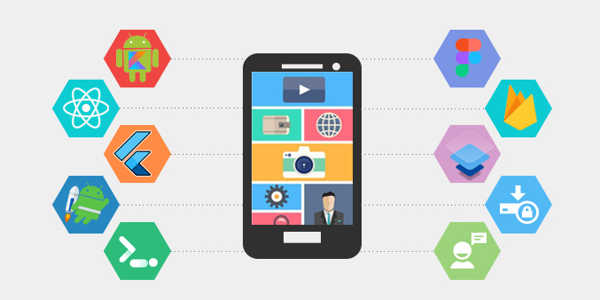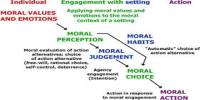How quickly can personality traits change? An international research team discovered that using a smartphone app on a daily basis can result in desired personality changes in as little as three months. And the effects of the daily interventions are still visible three months later.
Personality traits such as conscientiousness and sociability are patterns of experience and behavior that can change over time. Individual changes typically occur gradually as people gradually adapt to the demands of society and their surroundings. It is unclear, however, whether specific personality traits can be psychologically influenced in a short-term and targeted manner.
Researchers from Zurich, St. Gallen, Brandeis, Illinois, and ETH Zurich have now used a digital intervention to investigate this question. In their study, approximately 1,500 participants were given a specially developed smartphone app to use for three months, after which the researchers assessed whether and how their personalities had changed. Openness, conscientiousness, sociability (extraversion), considerateness (agreeableness), and emotional vulnerability (neuroticism) were the five major personality traits studied.
Knowledge transfer, behavioral and resource activation, self-reflection, and progress feedback were all included in the app. All interactions with the digital coach and companion (a chatbot) were conducted virtually. The chatbot assisted the participants on a daily basis in making the desired changes.
An international research team has shown that daily use of a smartphone app can lead to desired personality changes within three months. And three months after the daily interventions, the changes are still noticeable.
Changes after three months
The majority of participants stated that they wanted to improve their emotional vulnerability, conscientiousness, or extraversion. Those who took part in the intervention for more than three months reported greater success in achieving their change goals than those who took part for only two months. Close friends and family members also noticed changes in those participants who wanted to express a particular personality trait more. People close to those who wanted to reduce the expression of a trait, on the other hand, noticed little change. This group mainly comprised those participants who wanted to become less emotionally vulnerable, an inner process that is less observable from the outside.
“Three months after the intervention ended, the participants and their friends reported that the personality changes brought about by using the app had persisted,” says Mathias Allemand, professor of psychology at UZH. “These surprising findings show that we are not simply slaves to our personalities, but that we can change our routine experiences and behavior patterns on purpose.”

Important for health promotion and prevention
The findings also suggest that personality structure development can occur faster than previously thought. “Moreover, change processes accompanied by digital tools can be used in everyday life,” says first author Mirjam Stieger of Brandeis University in the United States, who earned her doctorate at UZH. More evidence of the effectiveness of digital interventions, however, is required. For example, it was unclear whether the changes made were permanent or merely reflected short-term fluctuations.
The current findings are not only interesting for research, but they may also have practical applications in a variety of fields. In health promotion and prevention, for example, such apps could increase individuals’ resources, as people’s attitude toward their situation and personality traits like conscientiousness have an impact on health and healthy aging.
The Smartphone App PEACH (PErsonality coACH)
PEACH, a smartphone application, was created as part of a project funded by the Swiss National Science Foundation (SNSF) to investigate personality change through digital intervention. The application provides scalable communication capabilities through the use of a digital agent that simulates a human conversation. The PEACH app also includes digital journaling, goal reminders, video clips, opportunities for self-reflection, and progress feedback. Weekly core topics and small interventions are designed to address and activate desired changes, resulting in the development of personality traits.
The app was created to be used as a research tool. The project is novel in terms of personality psychology because it investigates the short-term changeability of personality traits, novel in terms of psychological intervention because it employs a new generic intervention model, and novel in terms of information systems because it investigates how mobile sensor services and anthropomorphic conversational agents must be designed to effectively deliver, However, it is expected that research apps such as PEACH will become more widely available in the future.
















